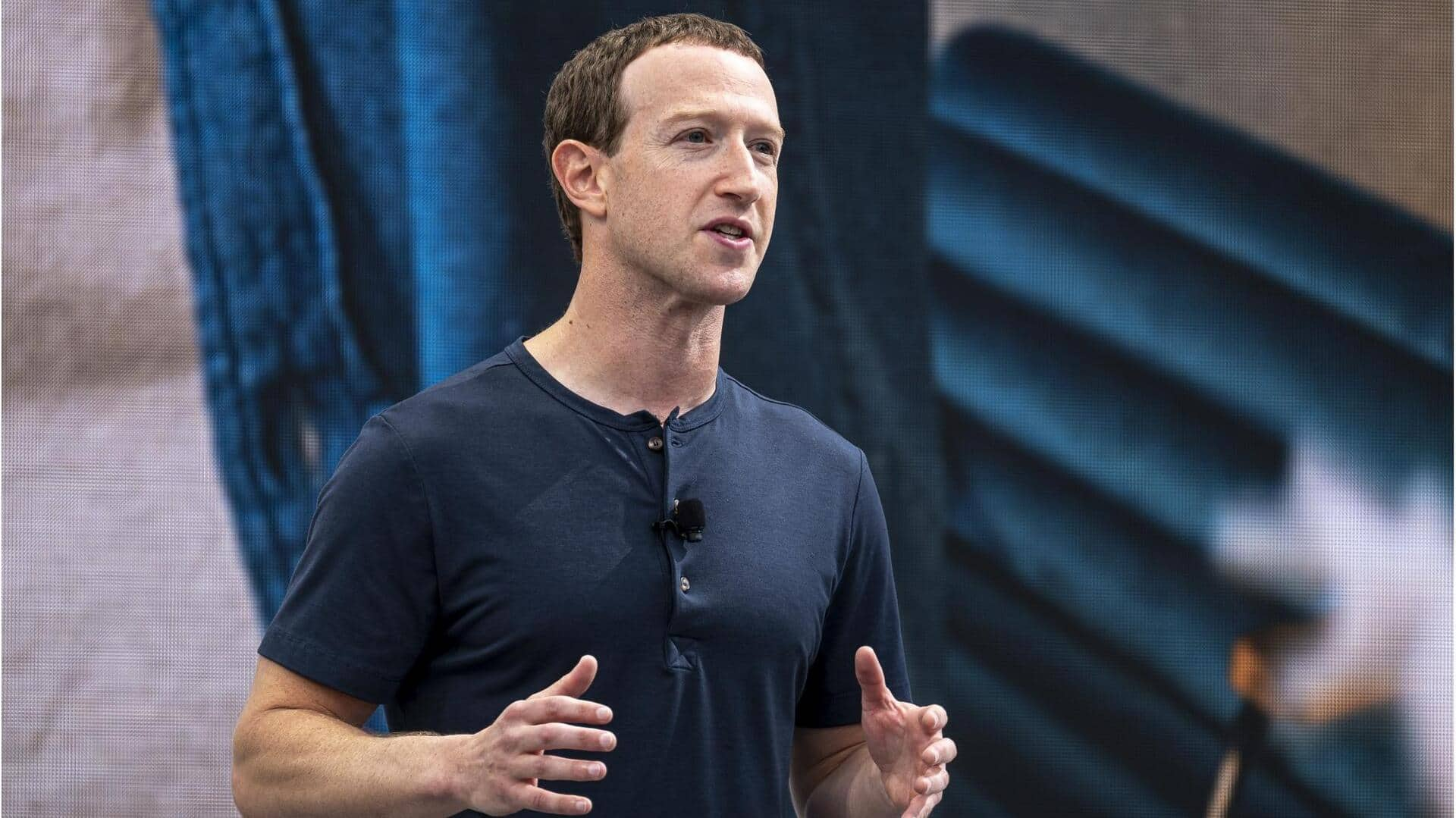
Mark Zuckerberg establishes tech advisory council for Meta's AI developments
What's the story
Meta CEO, Mark Zuckerberg, has established a tech advisory council to steer the company's artificial intelligence (AI) and product developments.
The council, dubbed the Meta Advisory Group, will hold regular meetings with Meta's management team.
The group members include Stripe CEO Patrick Collison, former GitHub CEO Nat Friedman, Shopify CEO Tobi Lütke, and ex-Microsoft executive Charlie Songhurst.
Internal note
Zuckerberg's respect for members
Zuckerberg has expressed his admiration for the group in an internal note to employees, according to Bloomberg.
He writes, "I've come to deeply respect this group of people and their achievements in their respective areas, and I'm grateful that they're willing to share their perspectives with Meta at such an important time as we take on new opportunities with AI and the metaverse."
The CEO's admiration underscores the significance of this council in Meta's strategic planning.
Council duties
Advisory council's role
The advisory council is separate from Meta's 11-person board of directors.
Unlike board members, council members are not elected by the shareholders, and do not have a fiduciary duty to Meta.
A spokesperson for the company confirmed that the council members will not receive payment for their roles.
The primary function of the advisory group is to offer insights and recommendations on technological advancements, innovation, and strategic growth opportunities.
AI ambitions
Meta's heavy investment in AI technology
Meta is significantly investing in AI technology, spending billions on chips to fuel its AI ambitions.
The firm is developing an AI model to power recommendations for its video ecosystem and user feeds, as part of its "technology roadmap" from now until 2026.
Last month, Meta launched its AI assistant across all platforms, including Facebook and Instagram, marking a significant step in its technological advancement.
Talent acquisition
Zuckerberg's personal efforts to attract talent
In addition to financial investments, Zuckerberg has been personally reaching out to researchers at Google's DeepMind, attempting to persuade them to join Meta.
The company has even offered jobs without interviews and changed its policy of not offering higher salaries to talent who have job offers from competitors.
These efforts highlight the company's aggressive strategy in securing top-tier AI expertise.